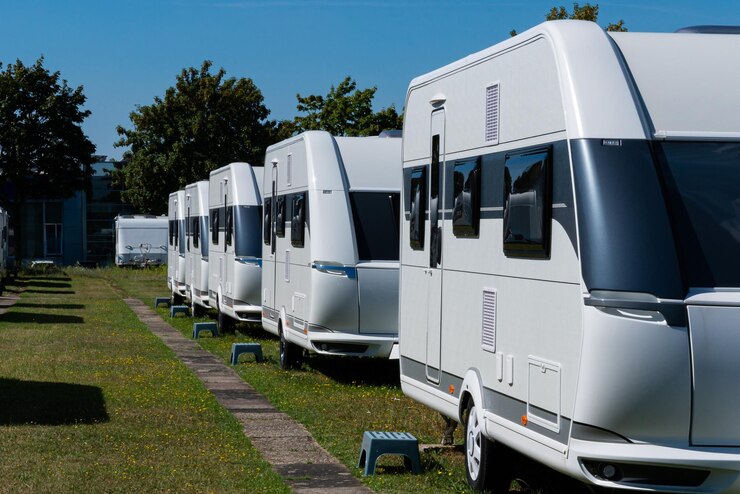The Ultimate Guide To RV Storage Options: What You Need To Know
September 28, 2023

toc impalement
RVs (Recreational Vehicles) offer the freedom to hit the open road and explore the great outdoors while enjoying the comforts of home.
However, when the adventure ends, finding the right storage option for your RV becomes crucial, especially when you search for “rv storage near me.” Whether you’re a seasoned RVer or a newbie, this ultimate guide will provide valuable insights into storage options, helping you make an informed decision for the care and safekeeping of your beloved home on wheels.
Driveway Storage:
Driveway storage is the most convenient option for RV owners. You can park it right at home if you have an ample enough driveway or yard space. This provides easy access to your vehicle and allows you to prepare for trips and perform maintenance tasks with ease. However, there are a few things to consider:
Local Regulations: Check with your city or county to ensure there are no restrictions on parking it in your driveway, as some areas have ordinances limiting the size and duration of RV parking.
HOA Rules: If you live in a neighborhood with a homeowners association (HOA), review their regulations regarding storage, as they may have specific guidelines.
Security Measures: To keep it safe, consider installing security cameras, alarms, or motion-activated lights in your driveway.
Dedicated Storage Facilities:


For added convenience and peace of mind, consider using dedicated storage facilities. These facilities are designed specifically to cater to the needs of RV owners and offer a range of amenities and flexible options. Here’s what you need to know about them:
Climate Control: Many dedicated storage facilities offer climate-controlled storage units, which can be ideal for preserving the condition of your RV and its components, especially in extreme weather conditions.
Convenience: These facilities often provide easy access with wide driveways and maneuvering space, making it simple to park and retrieve your RV.
Flexible Contracts: Many facilities offer flexible rental agreements, allowing you to choose the storage duration that suits your needs, whether it’s short-term or long-term.
Garage Storage:
If you’re fortunate enough to have a garage to accommodate your RV, this is one of the best storage options available. Garage storage offers maximum protection from the elements and enhances security. Here’s what you need to know:
Clearance and Size: Ensure your garage has sufficient height and width to accommodate your RV. You may need to modify your garage or consider custom-built options.
Ventilation and Moisture Control: Proper ventilation and moisture control are essential to prevent mold and mildew growth. Consider installing vents and using dehumidifiers if needed.
Regular Maintenance: Even when stored in a garage, your RV may require regular maintenance to keep it in top condition. Check for any leaks or issues that may arise during storage.
Summing it Up:
In conclusion, selecting the right storage option, especially when you search for “RV storage near me,” is crucial for the well-being and longevity of your beloved home on wheels. Each option has pros and cons, so assessing your needs and budget is essential.
If you’re looking for affordability and are confident in your RV’s durability, outdoor storage might be the way to go. Covered storage compromises cost and protection, while indoor storage provides the utmost security and climate control.
For added convenience and peace of mind, consider using dedicated storage facilities. They offer various amenities and flexible options to cater to your specific requirements.
Remember, your choice should align with your RV’s needs and comfort level. Following the guidelines presented in this ultimate guide, you can ensure it remains in excellent condition, ready for your next adventure on the open road.
Read Also:


















Comments Are Closed For This Article